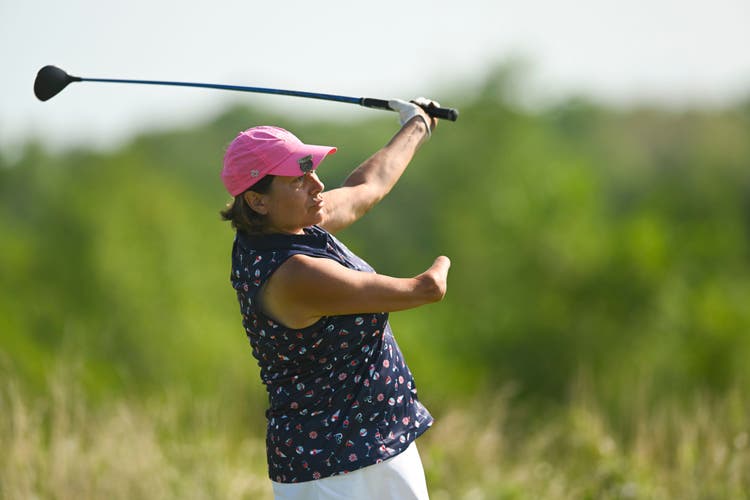
Classification in Golf for Athletes with a Disability - Future Alignment with IPC Code 2025
Classification is a cornerstone of the Paralympic Movement, ensuring fair competition by grouping athletes based on how their impairment affects their ability to perform in sport. In golf, where precision, control, and consistency are paramount, classification ensures that athletes with disabilities compete on a level playing field. The 2025 IPC Classification Code builds on earlier editions (2007, 2015) and reflects a comprehensive three-year consultation process with stakeholders across Para sport.
The updated Code is designed to keep pace with the rapid evolution of Para sport, including golf, and aims to enhance consistency across all disciplines. It establishes the framework upon which all classification systems must be built, setting minimum standards and offering guidance across key areas.
The revised Code strikes a balance between harmonisation and sport-specific flexibility, allowing golf to tailor its classification system to the unique demands of the sport while adhering to universal principles. It also strengthens compliance obligations, requiring all International Federations (IFs), including the International Golf Federation (IGF), to align with the Code’s policies and procedures.
The Four-Stage Classification Process in Golf
The classification process under the 2025 Code consists of four core stages:
- Underlying Health Condition Assessment: Verification that the athlete has a health condition eligible for Para sport.
- Eligible Impairment Assessment: Determining whether the athlete’s impairment meets IPC-defined criteria.
- Minimum Impairment Criteria (MIC) Assessment: Evaluating whether the impairment significantly impacts golf performance.
- Sport Class Allocation: Assigning the athlete to a sport class based on how their impairment affects their ability to execute golf-specific tasks.
Each stage is designed to ensure that athletes are classified accurately and fairly, with a clear understanding of how their impairment influences their performance on the course.
Key Updates in the 2025 Code
Among the most notable changes are:
- Clearer definitions and procedures for each classification stage.
- Enhanced guidance for IFs, including protocols for protests (challenges to sport class assignments) and appeals (challenges to the classification process itself).
- Requirements for IFs to assess the impact of classification changes on athletes and to implement appropriate communication and transition strategies.
The IPC also introduced updated International Standards covering:
- Classification Personnel: Qualifications, roles, and responsibilities.
- Intentional Misrepresentation: Measures to detect and address deliberate misrepresentation of impairment.
- Data Protection: Ensuring athlete data is handled securely and ethically.
These standards provide detailed guidance to the IGF, helping us manage our classification systems with integrity and transparency.
Emphasis on Research and Best Practices
The IPC continues to advocate for sport-specific, evidence-informed classification systems. In golf, this means developing classification protocols that reflect the unique physical and technical demands of the sport. Ongoing research is essential to ensure that classification remains scientifically valid and athlete centred.
The IGF is encouraged to adopt best practices and continuously refine its classification methods in line with emerging research and the evolving needs of golfers with a disability.
Impact on the IGF and Golf for Athletes with a Disability
The IGF, as the recognised International Federation for Golf for Athletes with a Disability in the Paralympic Movement, is currently reviewing its classification framework to align with the 2025 IPC Classification Code. While the existing system remains in place for now, a comprehensive assessment will identify areas requiring updates to ensure compliance with the new standards.
Changes to the IGF Classification Rules will be introduced progressively, with clear communication to all stakeholders. The IGF is committed to a transparent and athlete-focused transition, ensuring that golfers with a disability are supported throughout the process.
A key update will be the integration of the four-step classification model into IGF procedures:
- Underlying Health Condition (UHC) Assessment: Confirming eligibility based on medical diagnosis.
- Impairment Assessment: Verifying the nature and consistency of the impairment.
- MIC Evaluation: Determining if the impairment meets the threshold for golfers with a disability classification.
- Sport Class Allocation: Assigning athletes to appropriate sport classes based on how their impairment affects golf-specific skills such as swing mechanics, mobility, and shot execution.
Additionally, terminology used in the new IGF Classification Master List will reflect the language and structure of the 2025 Code. The approach to adaptive equipment will remain under the purview of the USGA and the R&A, but we will work with our partners to ensure that there is compliance with the IPC Code.
The IGF’s focus will be on developing competitive player pathways through IGF-covered competitions, maintaining fair competition, supporting athlete development, and fostering inclusivity as these changes take effect.
Implementation, Compliance, and Education
The IPC has highlighted compliance requirements and educational initiatives. The 2025 IPC Classification Code mandates that all IPC Members, including the IGF, not only adopt the Code’s provisions but also implement and enforce them effectively.
Compliance will be monitored through self-assessments, audits, action plans, and ongoing reporting. The IPC’s goal is to foster a culture of collaboration, transparency, and continuous improvement across Para sport.
To support implementation, the IPC has launched several educational resources:
- Classification Fundamentals Course: An online introduction to classification, updated to reflect the 2025 Code.
- IPC Learn Platform: A centralised hub offering personalised learning tools, classification resources, and community engagement.
- Workshops and Research Projects: In-person and virtual initiatives to support IFs in refining their classification systems.
Looking Ahead for Golf for Athletes with a Disability
The 2025 IPC Classification Code marks a pivotal moment for golfers with a disability. As the IGF works to align its systems with the new standards, the emphasis will remain on fairness, transparency, and athlete empowerment. Through collaboration with the IPC and ongoing engagement with our partners and golfers with a disability, the IGF aims to ensure that classification continues to uphold the integrity of the sport and supports the growth of golf for athletes with disabilities.
For reference, the IPC Classification Code (effective 1 January 2025) and International Standards can be consulted on the IPC’s official website.